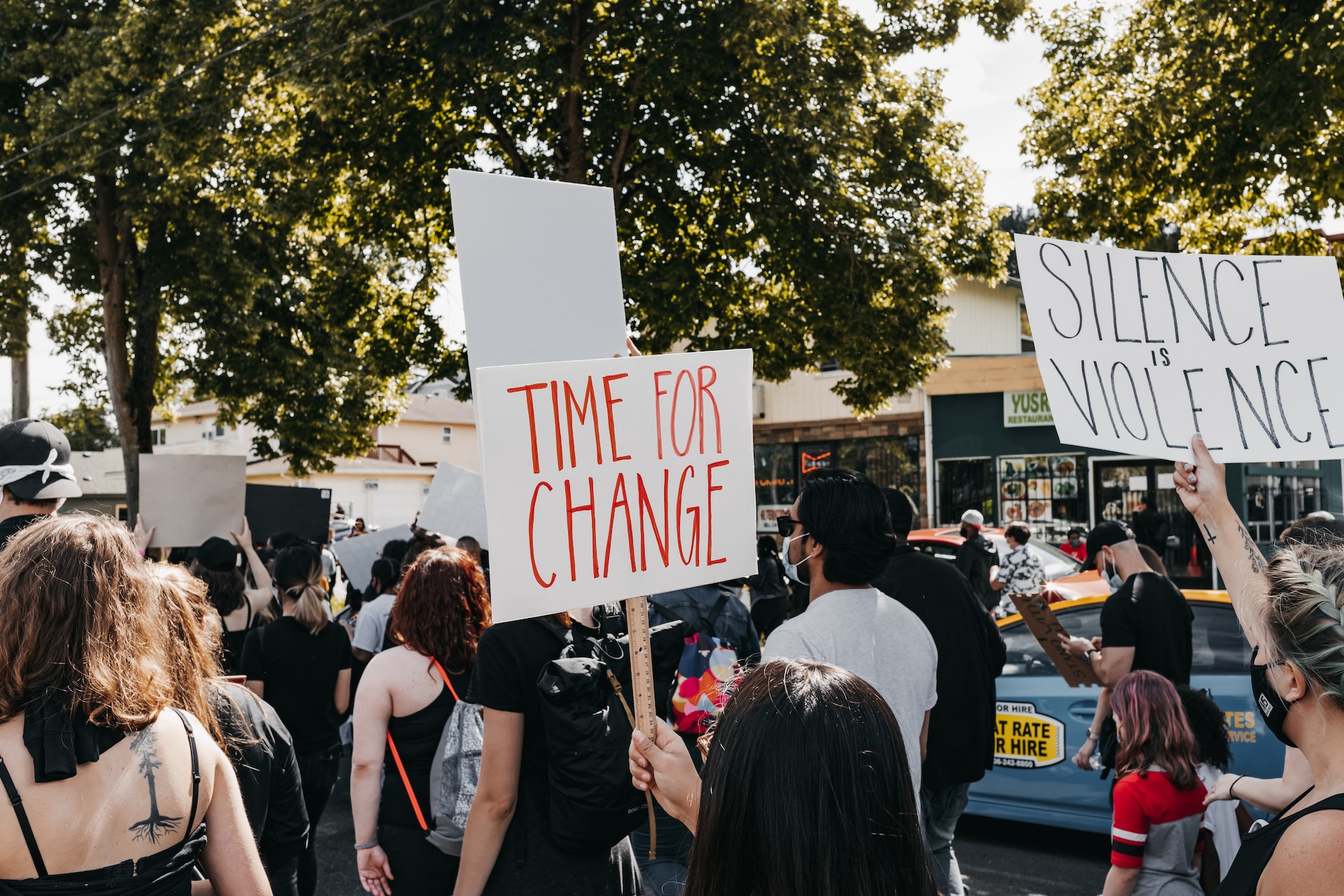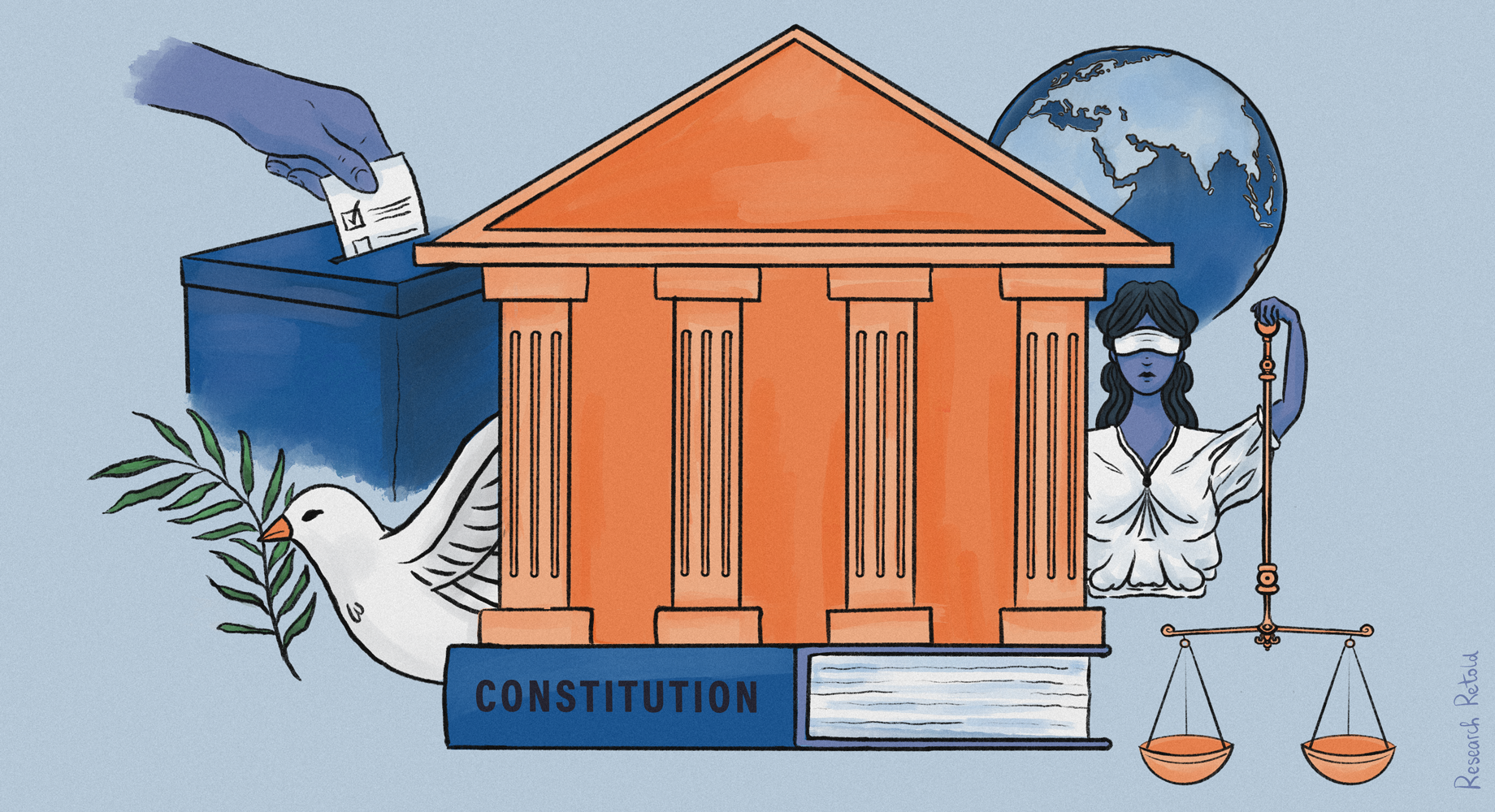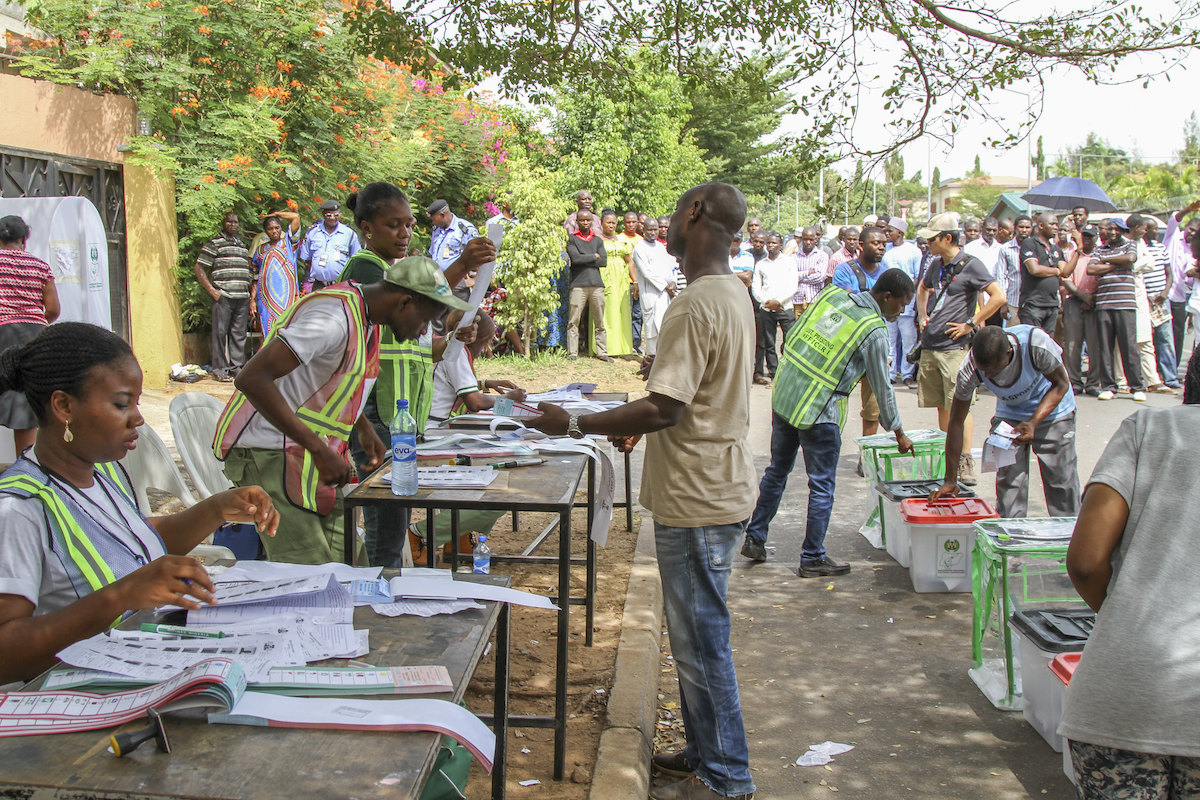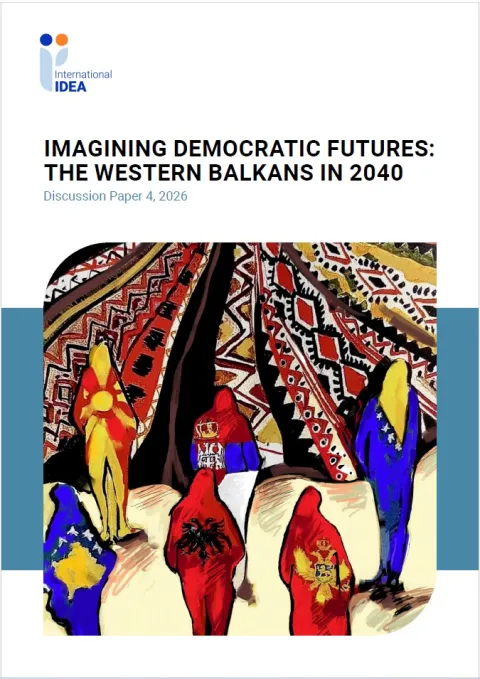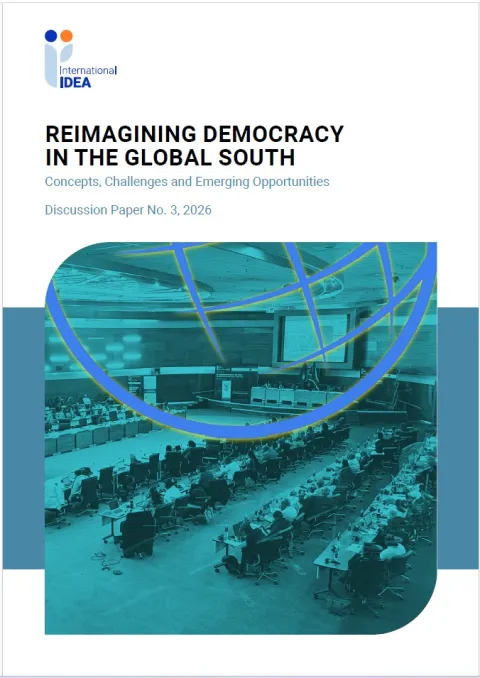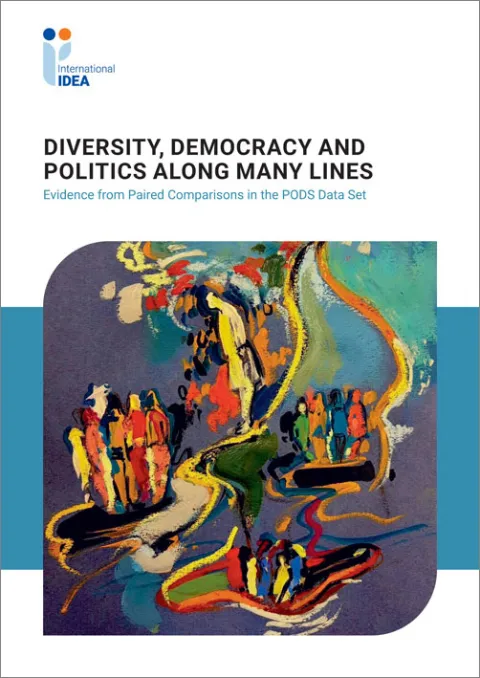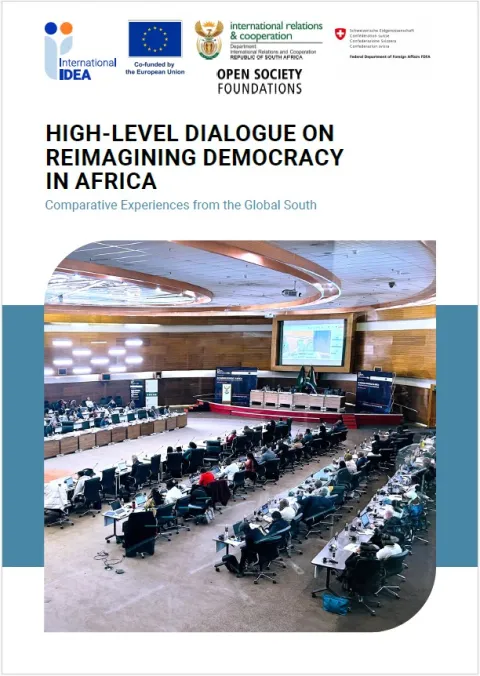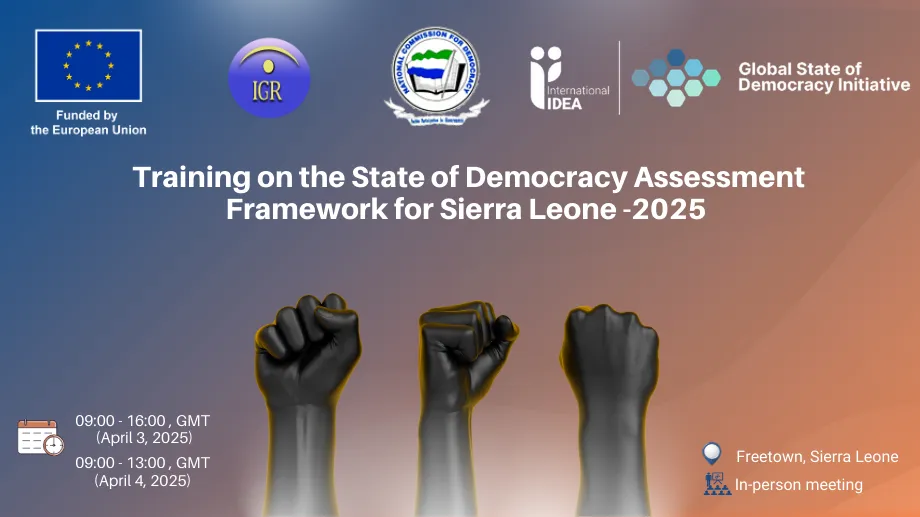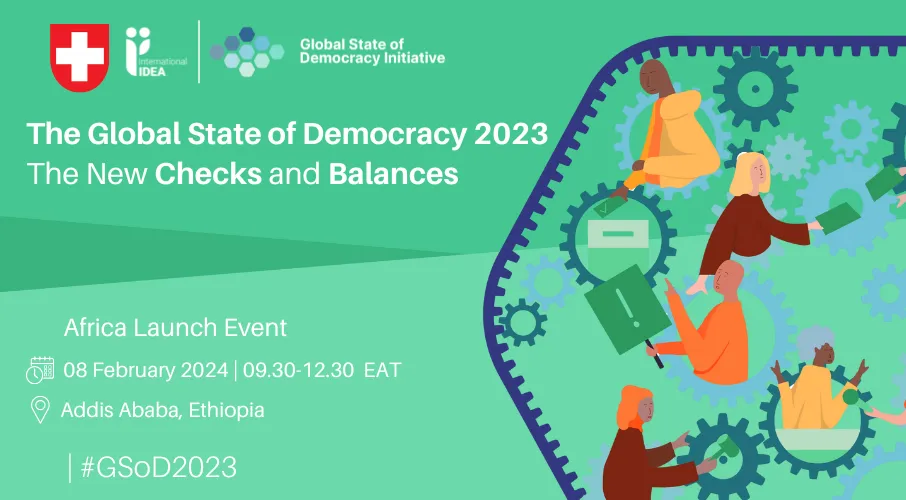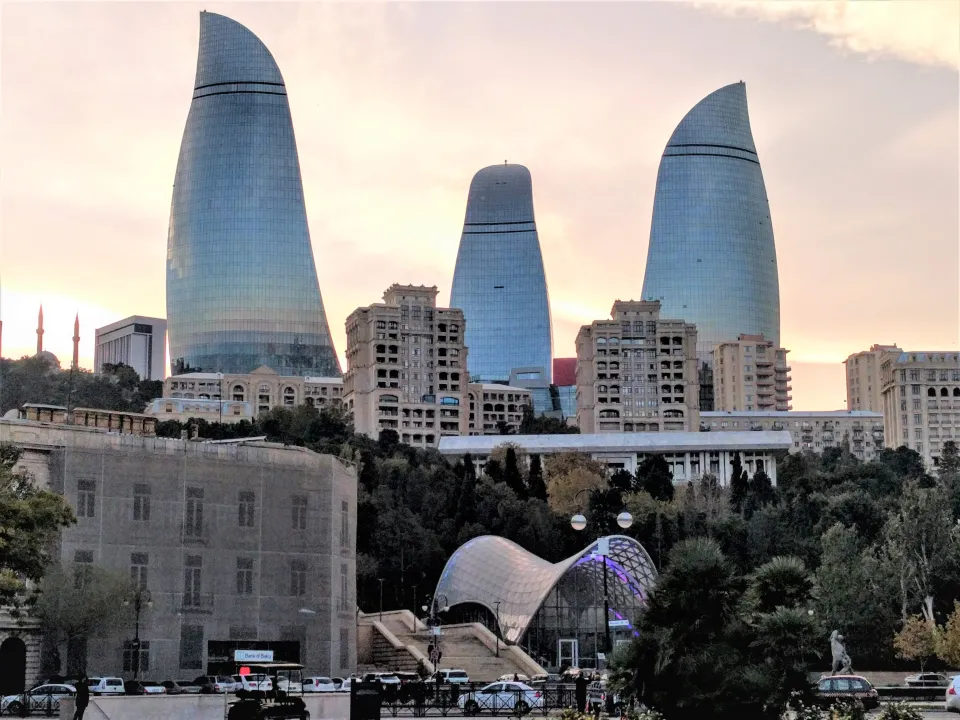The Global State of Democracy
Is democracy really in trouble, or do recent events simply signal a temporary downward fluctuation?
Are sceptics overreacting to sensational daily headlines, and losing sight of democracy’s numerous advances over the last few decades? Under what conditions is democracy resilient when challenged? To answer these questions, the first edition of International IDEA’s biennial publication, The Global State of Democracy, explores the challenges and risks to democracy as well as the enabling conditions for its resilience—its ability to adapt and recover from complex challenges and crises.
Access the digital version of The Global State of Democracy and the Global State of Democracy Indices.
International IDEA defines democracy as a political system that advances popular control and political equality. Democracy is a proven universal value for citizens all over the world, and should be accepted as a globally owned concept for which there is no universally applicable model. Democracy comes in multiple forms, which are in constant evolution, with no endpoint.
The Global State of Democracy seeks to address the lack of analytical material on democracy building and the quality of democracy internationally, and to bridge the gap between academic research, policy development and democracy assistance initiatives. It provides evidence-based analysis of the global state of democracy. It introduces the new Global State of Democracy (GSoD) indices as a key evidence base to inform policy interventions and identify problem-solving approaches to trends affecting the quality of democracy.
Details
Contents
Overview (in Arabic, English, French and Spanish)
Foreword
Michelle Bachelet
Preface
Yves Leterme
Acknowledgements
Abbreviations
Chapter 1. The global state of democracy, 1975–2015
Chapter 2. Democracy’s resilience in a changing world
Chapter 3. Threats from within: democracy’s resilience to backsliding
Chapter 4. The changing nature of political parties and representation
Chapter 5. Money, influence, corruption and capture: can democracy be protected?
Chapter 6. Mind the gap: can democracy counter inequality?
Chapter 7. Migration, social polarization, citizenship and multiculturalism
Chapter 8. Inclusive peacebuilding in conflict-affected states: designing for democracy’s resilience
Annex: The Global State of Democracy Indices Methodology
Additional resources
Background Papers
Democracy and Resilience: Conceptual Approaches and Considerations
Geographic definitions of regions in The Global State of Democracy
Resource Guides
Democracy and Inequality
Democracy and Peacebuilding
Measuring Public Support for Democracy
Innovations in Anti-Corruption Approaches
Elections, Electoral Systems and Party Systems
Migration, Multiculturalism and Democracy
Methodology documents
The Global State of Democracy Indices Methodology: Conceptualization and Measurement Framework
The Global State of Democracy Indices Codebook
The Global State of Democracy Indices: Technical Procedures Guide
Give us feedback
Do you have a question or feedback about this publication? Leave us your feedback, and we’ll get back to you
Send feedbackThe Global State of Democracy
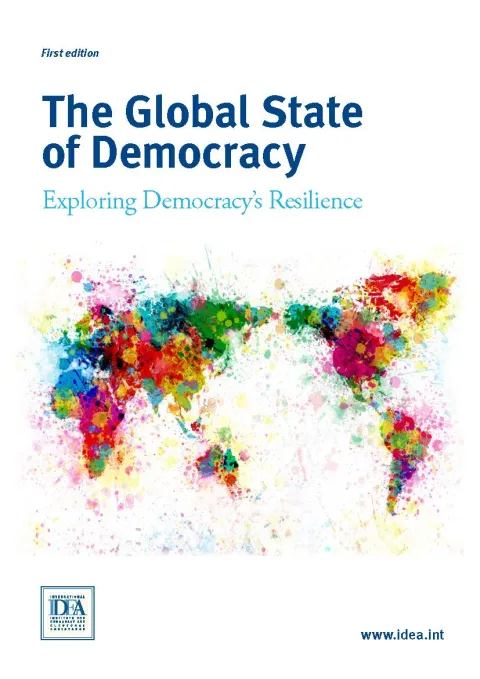
| Total views | 33107 |
|---|---|
| Downloads | 0 |
| Rating |
Give us feedback
Do you have a question or feedback about this publication? Leave us your feedback, and we’ll get back to you
Send feedback